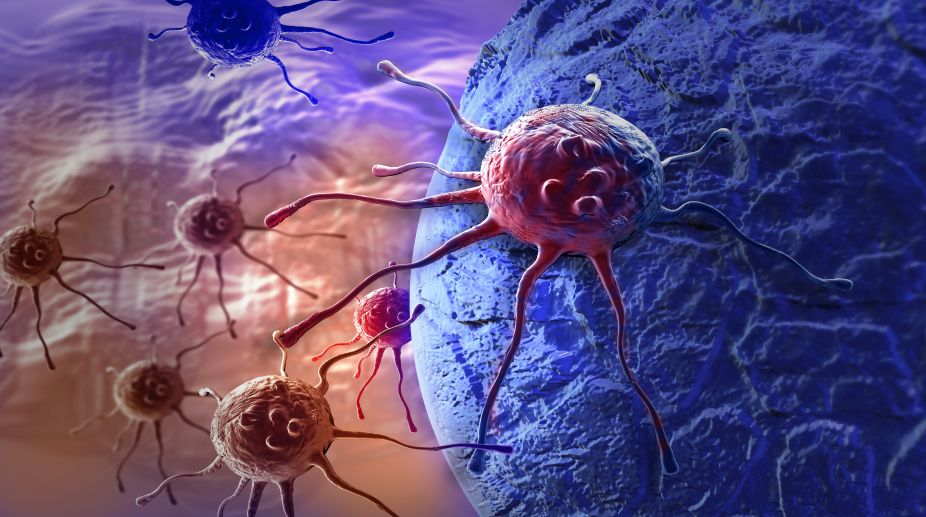IBM's Watson artificial intelligence system could help persons with cancer by providing a rapid, comprehensive report of the genetic mutations at the root of their specific disease and the therapies that target them, says an Indian-origin pathologist.
"We have to change our whole behaviour in looking at tumours. We are missing too much and too often treatment does not work for patients," said Ravindra Kolhe, breast and molecular pathologist at the Medical College of Georgia at Augusta University in the US.
Advertisement
"With Watson, all oncogenes become targets," said Kolhe, who is giving an update on Watson Genomic Analysis during the international Cancer Genomics Consortium being held in Denver from August 7-9.
As an example, today a pathologist would analyse a melanoma biopsy for a single variation of the BRAF gene, which is present in about 50 per cent of melanomas.
There are drugs that directly target that mutated gene but if they do not find BRAF, the patient will receive a more broad-spectrum chemotherapy regimen.
Watson, on the other hand, has the ability to rapidly identify multiple variations in BRAF along with variations in nearly a dozen other genes known to contribute to the skin cancer as well as the therapies to target them, Kolhe said.
"The majority of the time, we just tell patients they have a cancer," Kolhe, an alumnus of Mahatma Gandhi Medical College in Aurangabad, Maharashtra, said.
"Watson can help us provide more comprehensive, personalised care to patients," Kolhe added.
Kolhe sequences DNA and RNA from a patient's tumour, feeds the information to Watson, a question-answering computer system that, unlike traditional search engines, can gather evidence and analyse data but also generate knowledge.
"In about 20 minutes, Watson looks at what is abnormal in the sample, then takes the abnormalities and looks all around the world to see what are the drugs already used against them, what studies are underway against them, even other drugs out there that might be useful," he explained.
Decisions about treatment clearly are still in the hands of physicians and patients, but Watson can make unprecedented information immediately available to make decisions about what treatment is best for an individual patient, Kolhe said.
As an example, as one of many test runs, Watson provided Kolhe a 30-page assessment of a patient with a rare soft tissue sarcoma, that included mutations on seven genes, where the mutations are, what they are known to do and options for targetting them.
There also was a list of gene alterations that have no known therapies as well as gene mutations that were present, but their contribution to disease aren't currently known.
It is those unknowns Watson comes across that might help researchers like Kolhe also identify new genetic contributors to a variety of cancers and make Watson a valuable scientific tool as well.











